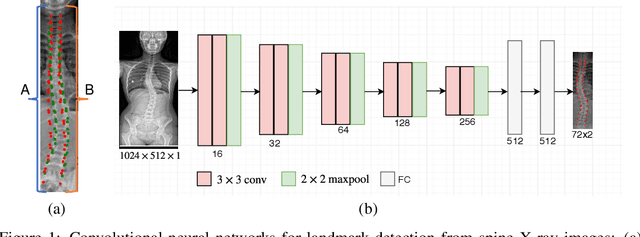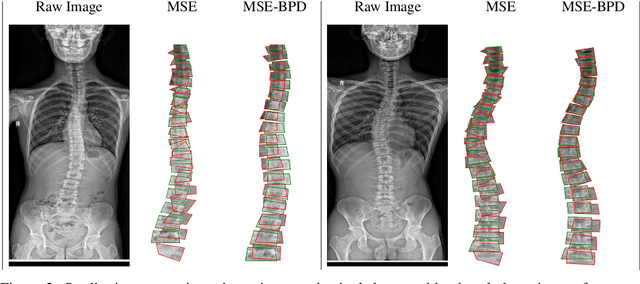Bipartite Distance for Shape-Aware Landmark Detection in Spinal X-Ray Images
Paper and Code
May 28, 2020

Scoliosis is a congenital disease that causes lateral curvature in the spine. Its assessment relies on the identification and localization of vertebrae in spinal X-ray images, conventionally via tedious and time-consuming manual radiographic procedures that are prone to subjectivity and observational variability. Reliability can be improved through the automatic detection and localization of spinal landmarks. To guide a CNN in the learning of spinal shape while detecting landmarks in X-ray images, we propose a novel loss based on a bipartite distance (BPD) measure, and show that it consistently improves landmark detection performance.
* Presented at Med-NeurIPS 2019
 Add to Chrome
Add to Chrome Add to Firefox
Add to Firefox Add to Edge
Add to Edge